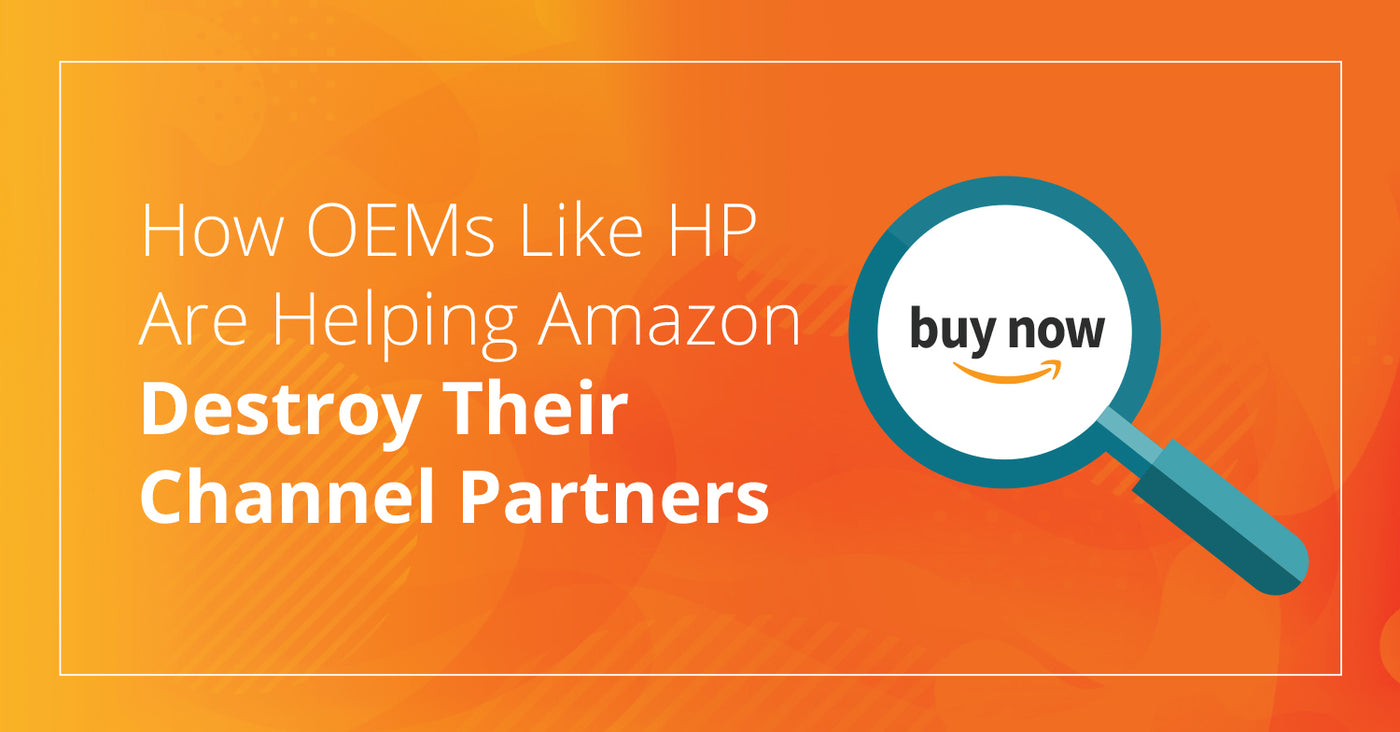If You Don't See That Your Main Competitor is Now Amazon, You’re Not Looking in the Right Direction

In hindsight, it’s always easy to explain how an industry was toppled. Often new technology emerged, or a new competitor entered the market that had a more compelling offer than incumbents. So, what’s happening to print and IT? People still print, and they still buy technology. Where’s all the business going? Amazon. It’s going to Amazon.
Here's how Amazon is playing OEMs to compete against their own partners.
Airbnb disrupted the vacation industry. Uber changed the taxi and food delivery business. Years ago, Netflix changed the movie rental and theatre business. That’s easy to see now, but it wasn’t so obvious when it was happening. Companies are too busy managing their businesses and fighting competitors that they don’t often take new entrants seriously—until it’s too late.
Back to Amazon and the technology business. It may already be too late for your business to survive the Amazon takeover. For those that enjoy chess, the game usually ends long before the King is toppled. A good player sees an opportunity, and disguises the sequence just long enough for the opponent to not realize what’s going on. There are three endings: when the winner knows they've made a fatal blow, when the loser finally realizes it, and then, when they concede and the King falls.
The moves Amazon is making are well disguised right now.
They are moving quickly to supplant the importance of OEM brands, and power within the channel. They are also picking up B2B customers by selling more technology SKUs. One example of Amazon using its brand power is the incredible volume of compatible SKUs they are selling. Don’t believe me?
Image Source www.amazon.com
There are 635 REVIEWS on ONE cartridge. Think about that. One cartridge, from one (of many) aftermarket suppliers. My MPSToolbox database has over 125,000 toner supply SKUs. That is an astounding number that should make you spit out your coffee.
If you are an OEM, this should scare the heck out of you. It should also make resellers angry. For example, HP is very strict about what its “partners” can and cannot do online. Yet, they allow their products to be sold on Amazon, and Amazon then enables compatible supplies to sell side by side more expensive OEM supplies—likely outselling the OEM themselves.
This constitutes an uneven playing field. Amazon, by virtue of its size, does things that other channel partners are not allowed to do.
Keep in mind that in order for a product to be sold online, the SKU owner (the OEM) needs to register the SKU and set it up online to authorize Amazon to sell it. There is no way an OEM can have SKUs available for sale on Amazon unless they authorize it.
I sympathize with OEMs—sort of. Amazon is selling billions of dollars in technology monthly. Not participating, would mean Amazon shoppers will substitute their products with other supplies, printers, or technology SKUs.
Do you know what else Amazon doesn’t do? They don’t share customer details. So, for those of you participating in the HP Amplify Program, you may ask why HP is OK with Amazon not supplying customer details, but HP “partners” MUST provide it.
OEMs like HP must be furious. Amazon gets a massive margin on their products, AND they control all customer details, and they can substitute those customer OEM purchases with compatible supplies, or other OEMs.
Maybe their hands are tied, but those OEM hands are also in the Amazon cookie jar. They may not like it, but for now, they are getting sales.
There are some things OEMs and you can do to combat Amazon.
There exists something called minimum advertised pricing (MAP). You cannot list a SKU below that price, and that is what Amazon sells the product for. But you, an authorized reseller, can sell products below that MAP.
You can also get some of your customers contracted pricing. Amazon does not have this option. In other words, you can beat Amazon’s price—rather easily. You can also help customers make smart buying decisions among the 1000s of SKUs they could buy to satisfy their technology needs.
None of this matters, however, if your business continues to think customers would rather see your outbound sales rep and talk to someone every day, and not buy online. None of this matters unless you begin to focus on your number one competitor—Amazon, and their successful sales strategy (sell things online).
Let’s get going. Book a demo today.



